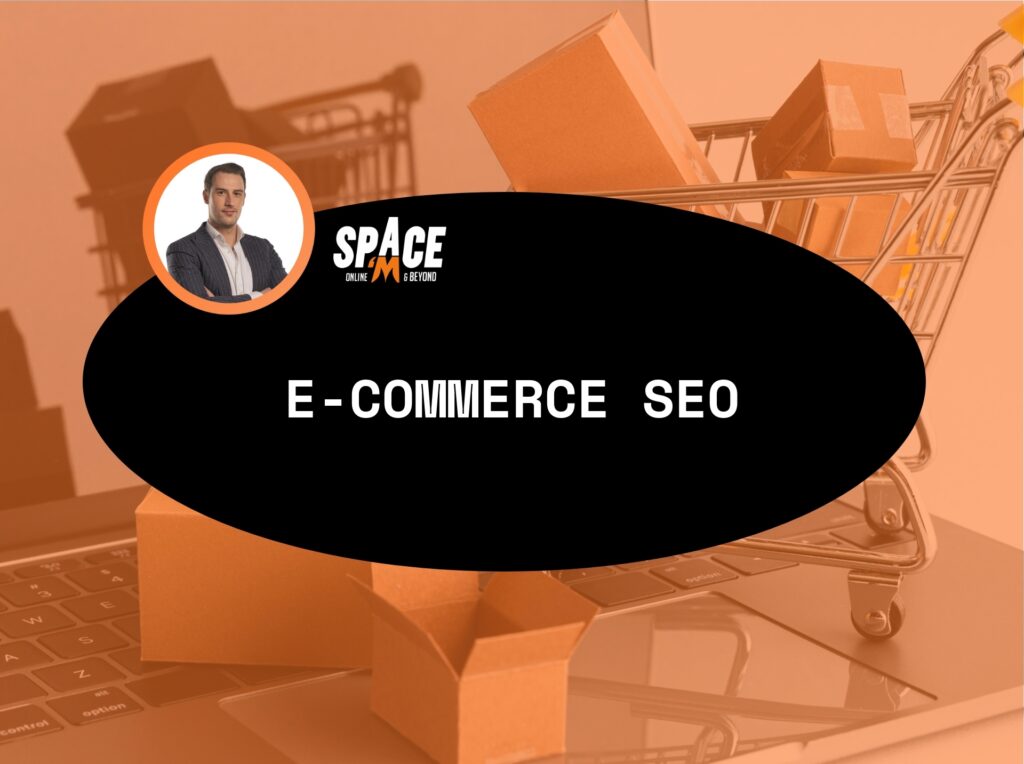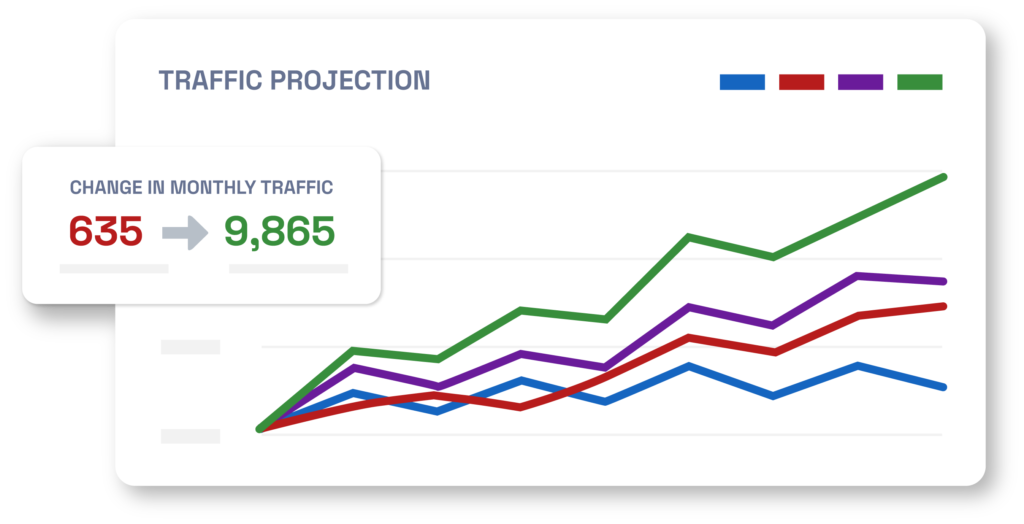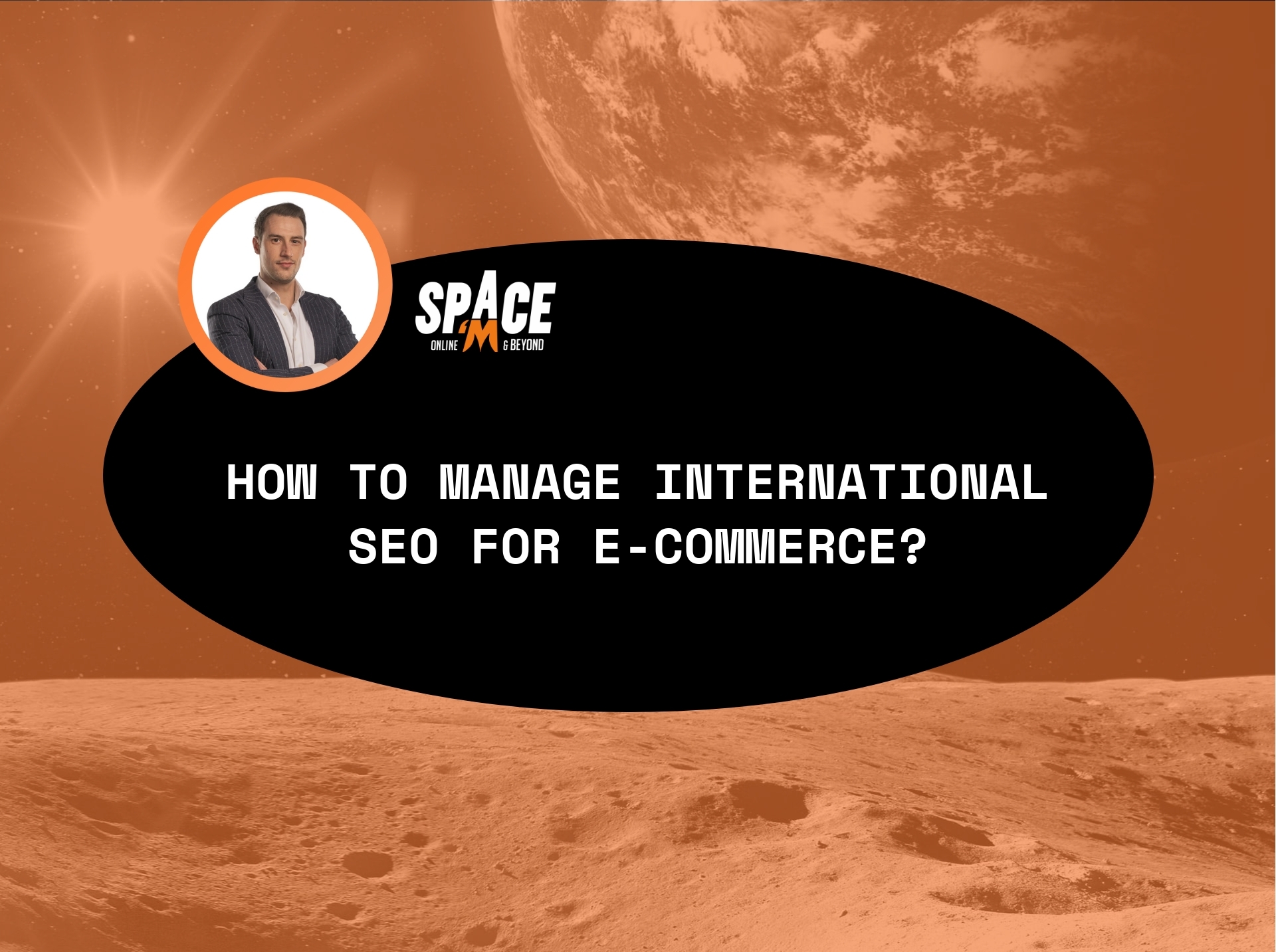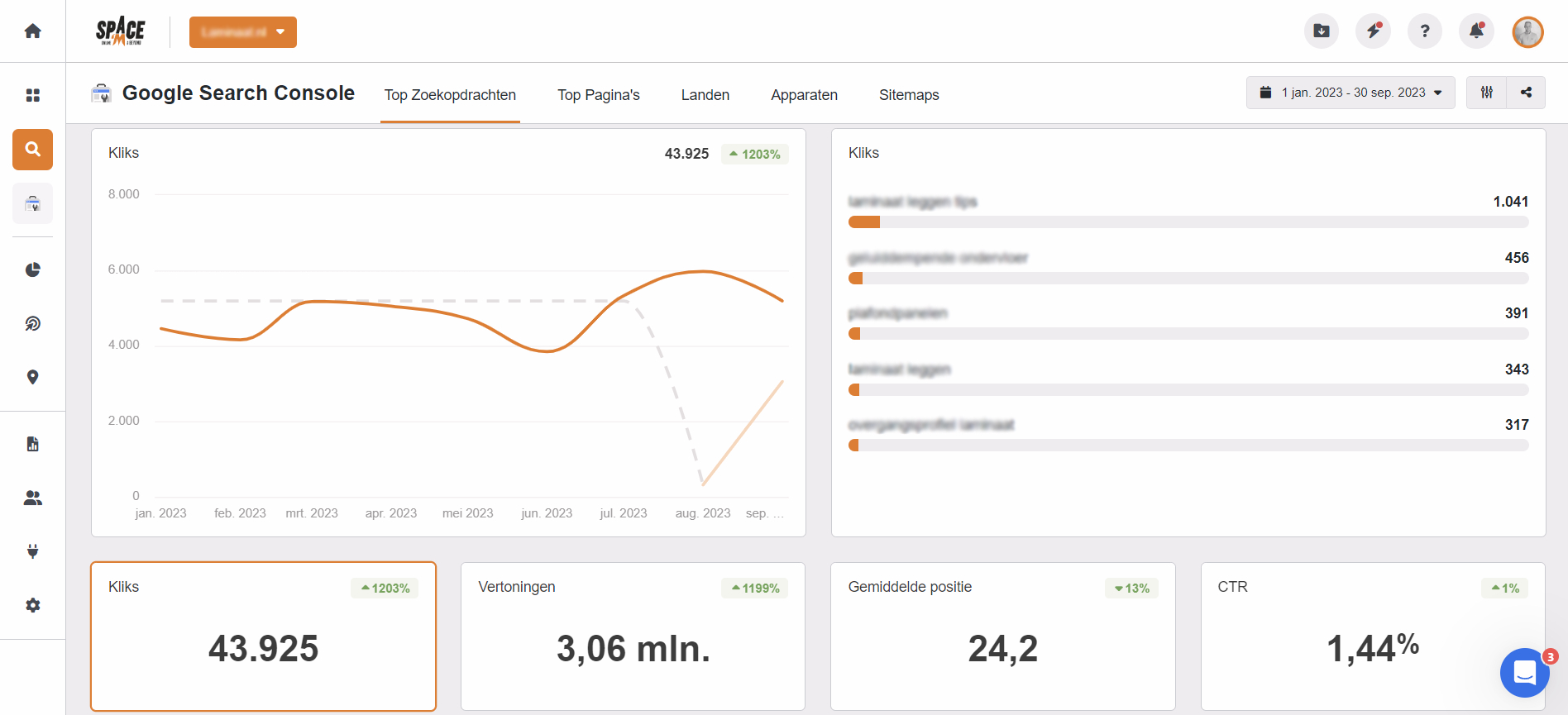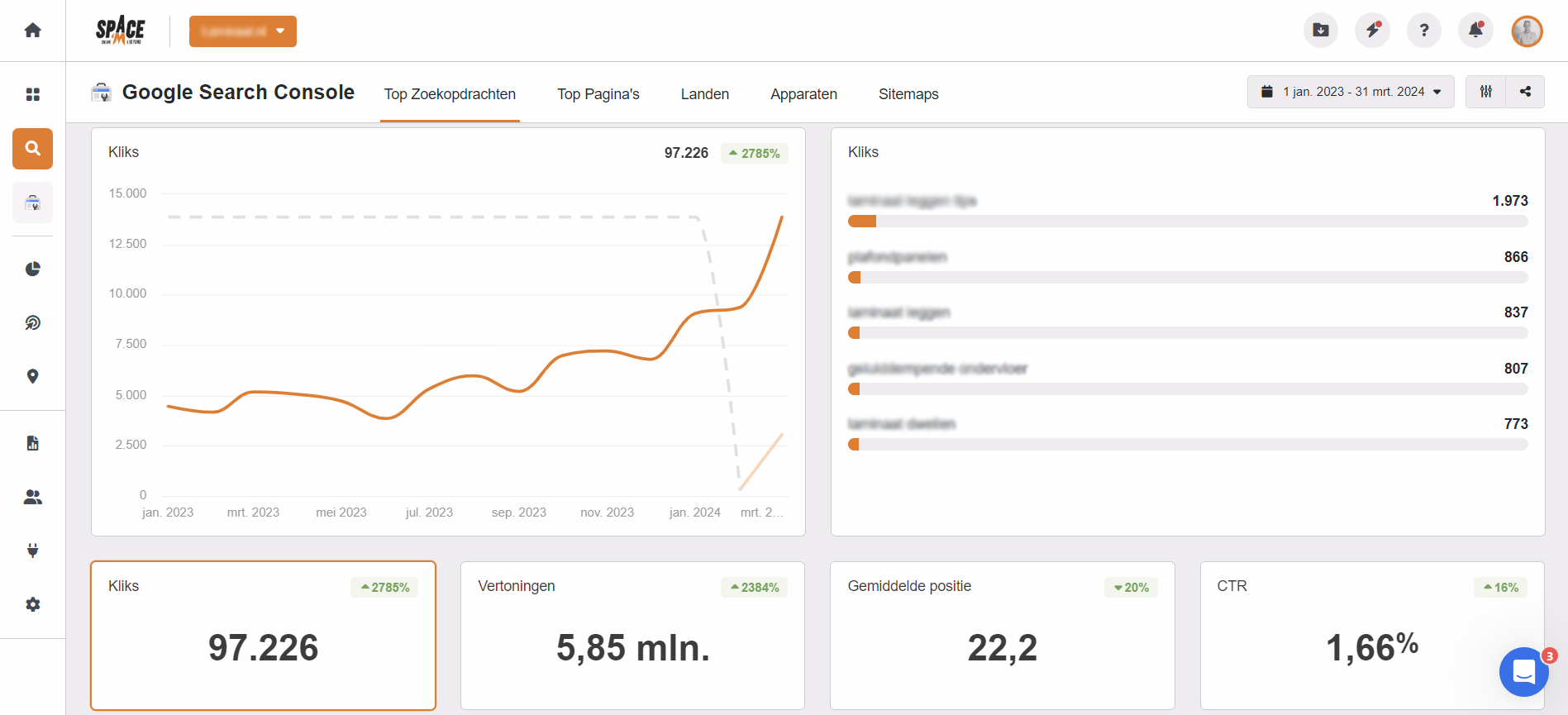Are you struggling to get your online store noticed in search results? E-commerce SEO is your solution. In this article, we’ll provide essential tips to improve your online store’s visibility on search engines, helping you attract more organic traffic and increase sales.
Key takeaways
- Ecommerce SEO significantly drives organic traffic and improves your online store’s visibility, thus leading to increased sales without relying solely on paid ads.
- Effective keyword research and on-page SEO optimization, including keyword placement in titles, headers, and product descriptions, are crucial for enhancing search rankings and user experience.
- Technical SEO factors like site speed, mobile responsiveness, and managing duplicate content are essential for maintaining high search engine rankings and providing a seamless user experience.
- A well-rounded ecommerce SEO strategy should include content marketing to drive organic traffic, build brand authority, and engage your audience with valuable blog posts, buyer guides, and user-generated content.
- Link building is a critical component of ecommerce SEO, helping to enhance your site’s domain authority and generate new traffic by acquiring high-quality backlinks from other websites.
Understanding Ecommerce SEO
Ecommerce SEO, or search engine optimization, is the practice of enhancing an online store’s organic rankings and visibility on search engines like Google, Yahoo and Bing. It requires the optimization of various elements on your online store to boost its performance in search results, which includes the strategic placement of keywords in essential areas like titles, headers, and product descriptions for effective understanding and ranking by search engines. But why is this so crucial for ecommerce sites?
Firstly, effective ecommerce SEO can significantly drive organic traffic to your site, which is essential for increasing sales without relying solely on paid ads or social media traffic. By optimizing your product and category pages, you ensure that they are relevant to search terms and appear higher in search results, thus attracting more potential customers. This organic visibility is not just about traffic but about quality, targeted traffic that is more likely to convert into sales.
Furthermore, an investment in ecommerce SEO can:
- Diminish the reliance on paid ads and social media for generating traffic
- Provide a continuous source of traffic and sales on autopilot
- Offer one of the highest ROIs in ecommerce marketing
While paid ads and social media can be effective, they often require continuous investment. SEO, on the other hand, primarily requires effort upfront. Once your site ranks well in search results, it can continue to drive traffic and sales without ongoing investment.
Understanding the importance of ecommerce SEO is the first step towards building a successful ecommerce business. Creating a robust ecommerce SEO strategy that fuels sustainable growth and maintains competitiveness in the digital marketplace can be achieved by concentrating on relevant keywords and optimizing your site’s structure and content.
Keyword Research for Ecommerce Sites
Any effective ecommerce SEO strategy fundamentally relies on keyword research. It involves identifying the search terms and phrases that potential customers use to find products online. This process is crucial for understanding search demand and ensuring your products and categories are organized in a way that enhances user experience and search engine visibility.
Performing thorough keyword research allows you to:
- Tailor your content and product offerings to match customer search intent
- Concentrate on relevant keywords to optimize your product and category pages, resulting in higher rankings in search results and driving more organic traffic to your site
- Identify gaps in the market and target keywords that your competitors may have overlooked
There are various tools and methods available for conducting ecommerce keyword research. Some of these tools include:
- Google Keyword Planner
- SEMrush
- Ahrefs
- Moz Keyword Explorer
- Amazon keyword tool
- Wikipedia
Each tool offers unique insights that can help you refine your SEO strategy and discover high-volume and high-intent keywords that can boost traffic and conversions for your online store. Utilizing ecommerce seo tools can further enhance your optimization efforts.
Finding Keywords with Google Keyword Planner
Google Keyword Planner is a powerful tool designed initially for PPC advertisers but equally useful for ecommerce keyword research. By entering seed keywords related to your products, you can generate a comprehensive list of keyword ideas that align with what your potential customers are searching for. This tool not only streamlines the keyword discovery process but also helps in identifying high-volume and high-intent keywords that can drive significant traffic to your site.
One of the key features of Google Keyword Planner is its ability to filter keywords by difficulty and volume. Targeting terms that have high search volume but manageable difficulty ensures that you focus on keywords that are feasible to rank for, bringing substantial traffic to your ecommerce website. This strategic approach ensures that your SEO efforts are both effective and efficient.
Using Google Keyword Planner, you can also gain insights into the search intent behind various keywords. Understanding user intent behind certain search terms enables you to:
- Tailor your content to their needs
- Enhance your likelihood of achieving higher rankings on search engine results pages (SERPs)
- Create an alignment between search intent and content, which is crucial for a successful ecommerce SEO campaign.
Using Amazon for Long Tail Keywords
Amazon, the giant ecommerce platform, offers a treasure trove of keyword insights that can be invaluable for your ecommerce SEO strategy. By using Amazon’s autocomplete feature, you can discover popular search terms related to your products that customers frequently use. These long-tail keywords are often more specific and less competitive, making them easier to rank for and more likely to convert into sales.
Amazon’s search suggestions provide a wealth of information about what customers are searching for, allowing you to tailor your product pages and content to meet their needs. Incorporating these long-tail keywords into your SEO strategy allows you to target highly relevant and specific search queries, which are often less competitive than broader terms. This approach ensures that you attract qualified traffic that is more likely to convert.
Additionally, tools like the Keyword Tool Dominator can scrape Amazon’s search suggestions and provide even more keyword ideas. This tool offers a broader array of long-tail keywords that you can use to optimize your product pages and improve your search engine rankings. By leveraging Amazon’s data, you can gain a competitive edge in your keyword research efforts and drive more targeted traffic to your ecommerce site.
Doing keyword research with SEMrush
SEMrush is an essential tool for conducting competitor analysis and uncovering new keyword opportunities for your ecommerce site. By analyzing the keywords that your competitors are already ranking for, you can:
- Identify relevant search terms to target
- Gain insights into their SEO strategies
- Stay ahead of the curve
- Optimize your site for high-value keywords
The ‘Competitors’ tab in SEMrush Organic Research shows sites that are ranking for many of the same keywords as your competitors. By exploring this data, you can identify relevant competitor sites and understand what keywords they are targeting. This information can help you refine your keyword strategy and target terms that are both relevant and achievable for your ecommerce website.
Filtering competitor keywords by difficulty, volume, and intent can further help you pinpoint the most promising keywords to target. By focusing on keywords that have a high search volume and manageable difficulty, you can optimize your product and category pages to rank higher in search engine results. This strategic approach guarantees that your SEO activities focus on keywords that will generate traffic and conversions for your online store.
Conducting Keyword Research with Ahrefs
Ahrefs is a comprehensive SEO tool that provides valuable insights into keyword performance and competitor analysis. By using Ahrefs, you can:
- Identify high-volume keywords
- Discover keyword gaps and opportunities
- Analyze competitor keywords
Ahrefs’ ‘Keywords Explorer’ tool allows you to find relevant keywords with detailed metrics such as search volume, keyword difficulty, and click potential. This data helps you refine your SEO strategy and target high-impact keywords.
Utilizing Moz for Keyword Research
Moz is another powerful tool for keyword research, offering features like:
- Keyword suggestions
- SERP analysis
- Keyword difficulty scores
Moz’s ‘Keyword Explorer’ helps you discover new keyword opportunities and optimize your content for better search visibility. By analyzing keyword metrics, you can focus on terms that will drive more organic traffic to your ecommerce site.
Wikipedia for Keyword Inspiration
Wikipedia can be an unexpected yet valuable resource for keyword research. By exploring Wikipedia pages related to your products, you can:
- Identify relevant keywords and phrases
- Discover related topics and subtopics
- Gain insights into user intent
Using Wikipedia’s content and structure, you can uncover long-tail keywords and niche topics that can enhance your SEO strategy and attract targeted traffic.
Make sure to select the right keywords for your online store
Selecting the right keywords is crucial for your ecommerce SEO strategy, this needs to be based on the products and customers you are aiming for. Here are some key factors to consider:
Relevancy
Ensure that your product or category pages are highly relevant to the keywords you choose. This is a critical ranking factor that is often overlooked. Focus on keywords that accurately describe your products to meet user expectations and satisfy search engines.
Volume
The higher the search volume of a keyword, the more potential traffic it can drive to your site. Tools like Ahrefs or Google Keyword Planner can help you determine the search volume of your target keywords.
Intent
Choose keywords that indicate a strong intent to purchase or learn about a product. For instance, if you own a pet supply store, “organic dog food” is more relevant than “dog breeds,” as it aligns with the intent of your target audience.
Competition
The lower the competition for a keyword, the easier it will be to rank for it. SEO tools provide keyword difficulty (KD) metrics to help you assess the level of competition.
By carefully considering these factors, you can select the most effective keywords for your ecommerce site and enhance your search engine visibility.
On-Page SEO for Ecommerce Websites
On-page SEO is a critical component of any successful ecommerce SEO strategy. It involves optimizing various elements of your web pages, including:
- Titles and meta descriptions
- Body content like product and category descriptions
- Headers
- URLs
- Images and alt text
- Internal links
Optimizing Title Tags and Meta Descriptions
Meta titles and descriptions play a crucial role in attracting users to click on your search results. These elements should briefly summarize the page content and include relevant keywords to improve their visibility in search engine results. Crafting enticing titles and descriptions that accurately reflect the content can significantly impact your click-through rates and drive more traffic to your site.
When optimizing title tags and meta descriptions, it’s essential to place the target keyword close to the beginning of the title tag. This strategy helps promote the central themes of the page and ensures that search engines understand what the page is about. Additionally, using compelling language can entice users to click on your search results, further improving your site’s visibility and traffic.
Enhancing Product and category Descriptions
Unique, comprehensive product descriptions are vital for improving the ranking of your product pages and reducing thin content on your site. These descriptions should be detailed and include all necessary information to satisfy user intent, such as product features, benefits, and specifications. By providing valuable content that addresses customer needs, you can enhance the overall user experience and improve your search rankings.
When crafting product descriptions, it’s important to use the target keyword 3-5 times throughout the content. This ensures that the keyword is adequately represented, helping search engines understand the page’s relevance to the search term. Additionally, including details such as shipping costs, user reviews, and return policies can keep users engaged and reduce bounce rates.
Creating unique product and category descriptions also helps search engines better understand your pages, leading to higher rankings and more visibility in search results. By investing time and effort into writing comprehensive and informative product descriptions, you can ensure that your ecommerce site stands out in the competitive digital marketplace.
Enhancing Headers
Headers (H1, H2, H3, etc.) are essential for structuring your content and improving its readability. They help search engines understand the hierarchy and relevance of your content. By incorporating relevant keywords into your headers, you can improve your page’s SEO and ensure that your content is easily scannable for both users and search engines. Properly structured headers can also enhance the user experience, making it easier for visitors to find the information they need.
Optimizing URLs
URLs should be clear, concise, and include relevant keywords to improve search engine visibility. A well-structured URL not only helps search engines understand the content of the page but also provides a better user experience. Avoid using long, complicated URLs with unnecessary parameters. Instead, focus on creating short, descriptive URLs that accurately reflect the page content. This approach can enhance your site’s SEO and make it easier for users to navigate your site.
Images and Alt Text
Images play a crucial role in ecommerce websites, providing visual appeal and helping to showcase products. Optimizing images involves using relevant file names, compressing images to reduce load times, and including descriptive alt text. Alt text is especially important for SEO as it helps search engines understand the content of the images. By including relevant keywords in your alt text, you can improve your page’s search visibility and ensure that your images are accessible to all users, including those using screen readers.
Internal Linking Strategies
Internal linking is a powerful SEO strategy that can significantly boost your site’s search visibility and user engagement. By strategically linking to high-priority pages within your content, you can:
- Funnel authority throughout your site
- Improve the ranking potential of these pages
- Ensure that pages receive the most authority from the home page
- Enhance their chances of ranking highly in search results
Proper navigation and internal linking are key to maximizing the benefits of internal linking.
Including one or two internal links every few hundred words within your content can guide users to relevant pages, keeping them engaged and increasing the likelihood of conversions. This strategy not only improves the user experience but also helps search engines crawl and index your site more efficiently. By providing clear pathways for users to navigate your site, you can enhance overall site structure and search visibility.
A well-optimized site architecture is crucial for ecommerce sites, as it helps users and search engines easily navigate and find all pages on your site. By connecting the homepage to the category page and then to individual product pages, you can ensure that every page is just a few clicks away from the homepage. This simple and scalable structure concentrates link authority on product and category pages, improving their rankings and making it easier for search engines to index your entire site.
Technical SEO for Ecommerce Sites
Technical SEO acts as the backbone of a successful ecommerce website, addressing issues that can significantly impact your search engine rankings and overall site performance. From site speed to mobile responsiveness, technical SEO ensures that your site is optimized for both users and search engines. This is especially crucial for ecommerce sites, which often have complex URL structures and numerous pages.
Concentrating on these key areas ensures a smooth operation of your ecommerce website and higher rankings in search engine results. Implementing technical SEO strategies such as using HTTPS, optimizing your site’s architecture, and conducting regular site audits can help you identify and fix issues that could negatively impact your site’s performance.
Improving Site Speed
Site speed is a critical factor that influences both user experience and search engine rankings. Slow-loading pages can frustrate users and lead to higher bounce rates, which can negatively impact your SEO performance. Using Google’s PageSpeed Insights Tool, you can analyze your site’s speed performance and get actionable insights to improve load times.
The PageSpeed Insights Tool provides a score from 1 to 100 for both mobile and desktop versions of your site. It offers specific recommendations such as optimizing images, leveraging browser caching, and minimizing code to reduce load times. Following these recommendations allows you to boost your site’s speed, enhance user experience, and improve your search engine rankings.
Implementing these changes not only makes your site faster but also ensures that it meets the performance standards set by search engines. A faster site can lead to more traffic, better user engagement, and higher conversion rates, making site speed optimization a crucial aspect of your ecommerce SEO strategy.
Mobile Responsiveness
In today’s mobile-centric world, having a mobile-responsive website is no longer optional; it’s a necessity. Google’s mobile-first indexing means that the mobile version of your site is primarily used for indexing and ranking. This shift underscores the importance of ensuring that your ecommerce site is optimized for mobile devices.
A mobile-friendly design includes easily readable content with appropriate font sizes and types, and adequately sized website elements like buttons and images. A mobile-responsive site can significantly enhance user experience, lower bounce rates, and improve your search engine rankings. With more than 60% of Google searches being performed on mobile devices, optimizing for mobile is crucial for capturing this growing segment of users.
Handling Duplicate Content
Duplicate content is a common issue for ecommerce websites due to various product variations and filters that create multiple URLs with similar content. This can lead to SEO issues as search engines may not know which version of the content to index and rank. Managing duplicate content is crucial to avoid penalization by Google.
One effective way to handle duplicate content is by using canonical URLs or tags. These tags identify the preferred version of a URL for search results, ensuring that search engines index the correct page. For example, canonicalizing faceted URLs to their master category or subcategory can help manage duplicate content created by product filters.
In cases where it is unavoidable, such as different versions of pages in multiple languages, you can handle content duplication by:
- Using hreflang tags to indicate the preferred version for each language or region
- Noindex-ing pages that are not essential for search results
- Creating unique content for those pages
These strategies help maintain the integrity of your site’s content and improve its search engine rankings.
Content Marketing for Ecommerce store
Content marketing is a powerful tool for boosting your ecommerce site’s SEO, increasing engagement, and building trust with your audience. The creation and distribution of valuable content can:
- Drive organic traffic to your site
- Boost your online presence
- Help you rank for both short and long-tail keywords
- Improve your search visibility
- Attract targeted traffic
- Engage your audience
- Position your brand as an industry authority
- Build trust and credibility with your customers
- Lead to higher engagement and longer website visits
- Boost your search engine rankings
- Drive more conversions
By consistently providing high-quality content, you can achieve these benefits.
There are various types of content you can create to support your ecommerce SEO strategy, including:
- Blog posts
- Category page content
- Product descriptions
- Buyer guides
- Tutorials
- User-generated content
Each type of content serves a unique purpose and can help you reach different segments of your audience. Leveraging content marketing enables you to boost your site’s visibility, build customer relationships, and increase sales.
Blogging for SEO
Blogging is an effective way to increase your website’s search visibility and attract organic traffic. Creating original, SEO-optimized content that resonates with your audience’s interests and needs can enhance your store’s reputation, authority, and visibility in search engine results. Regularly sharing helpful and relevant blog content can boost your website’s ranking for important keywords.
Blogs can cover a wide range of topics, including:
- Industry trends
- How-to guides
- Customer stories
- FAQs
By addressing common questions and providing valuable insights, you can attract and retain visitors, increasing the likelihood of conversions. Creating engaging blog posts that directly address customer needs can significantly improve your site’s SEO and drive more traffic.
Additionally, creating a blog section on your ecommerce site and publishing valuable content can:
- Attract backlinks from other websites
- Enhance your site’s authority
- Improve its search engine rankings
- Establish your brand as a reliable source of information
- Drive sustainable growth for your online store.
Crafting Compelling Category Page Content
Category pages are essential for organizing your products and enhancing user experience on your ecommerce site. Well-optimized category pages can significantly improve your search engine rankings and drive more organic traffic. Here are some key elements to consider when crafting category page content:
Clear and Concise Titles
Ensure that your category page titles are clear and descriptive, incorporating relevant keywords to improve search visibility. For example, instead of “Shoes,” use “Men’s Running Shoes.”
Engaging Descriptions
Write engaging and informative descriptions that highlight the unique features and benefits of the products within the category. Use relevant keywords naturally throughout the content to enhance SEO.
Visual Appeal
Include high-quality images and videos to showcase the products within the category. Visual content can capture customers’ attention and increase the likelihood of conversions.
Writing Effective Product Descriptions
Product descriptions play a crucial role in convincing customers to make a purchase. Well-crafted descriptions can improve your search engine rankings and enhance the overall user experience. Here are some tips for writing effective product descriptions:
Highlight Key Features
Clearly outline the key features and specifications of the product. This helps customers understand what the product offers and how it meets their needs.
Focus on Benefits
Emphasize the benefits of the product, explaining how it can solve a problem or enhance the customer’s life. Use persuasive language to create a compelling narrative.
Include Keywords
Incorporate relevant keywords naturally throughout the product description to improve search engine visibility. Avoid keyword stuffing, as it can negatively impact readability and SEO.
Use Bullet Points
Use bullet points to break down important information, making it easier for customers to scan and understand the product details quickly.
Add Social Proof
Include customer reviews, ratings, and testimonials to build trust and credibility. Social proof can significantly influence purchasing decisions.
By focusing on these elements, you can create category page content and product descriptions that not only improve your site’s SEO but also enhance the overall shopping experience for your customers.
Creating Buyer Guides and Tutorials
Buyer guides and tutorials are valuable content pieces that can help potential customers make informed purchase decisions. These guides provide detailed information about your products, addressing common customer queries and highlighting the benefits of your offerings. By creating well-crafted buyer guides, you can enhance customer experience and increase the likelihood of conversions.
Tutorials can showcase how to use your products effectively, providing step-by-step instructions and practical tips. This not only helps customers get the most out of their purchases but also builds trust and credibility with your audience. By offering valuable and informative content, you can improve your site’s SEO and drive more traffic to your ecommerce store.
Leveraging User-Generated Content
User-generated content, such as reviews and testimonials, can significantly enhance your site’s SEO by adding valuable, unique content. Showcasing customer reviews fosters trust and adds credibility, which can positively impact your search engine rankings. Encouraging and displaying user-generated content creates a sense of community and loyalty around your brand.
By leveraging user-generated content, you can:
- Enrich your product pages with fresh and relevant content that appeals to both users and search engines
- Improve your site’s search visibility
- Enhance the overall user experience
- Build trust
- Drive engagement
- Improve your ecommerce SEO strategy
User-generated content is a powerful tool for achieving these goals.
Link Building Strategies for Ecommerce
Link building is a critical component of SEO that can significantly impact your ecommerce site’s rankings and authority. Acquiring high-quality backlinks from other websites can enhance your site’s domain authority and generate new traffic. However, link building can be challenging for ecommerce sites due to the lack of enough linkable content.
One effective strategy is to focus on partnerships and create content that provides value to other websites. This can include:
- Resource page link building
- Digital PR
- Partnering with influencers
- Guest posting
- Broken link building
Each method offers unique opportunities to build backlinks and improve your site’s search engine rankings.
Implementing these link building strategies can boost your site’s authority and visibility in search results. Building quality backlinks helps Google recognize your site as an authority in your niche, leading to better rankings and more organic traffic.
Resource Page Link Building
Resource page link building is a technique that involves identifying authoritative resource pages within your niche and suggesting your content as a valuable addition. By offering high-quality, relevant resources, you can earn backlinks that improve your site’s credibility and search visibility.
Digital PR
Digital PR focuses on creating and distributing engaging stories, press releases, and content to attract media coverage and backlinks from reputable websites. This strategy not only boosts your brand’s visibility but also establishes your site as a trusted authority, driving more organic traffic and improving search engine rankings.
Partnering with Influencers
Partnering with influencers is an effective way to build backlinks and increase your site’s visibility. By tagging influencers on social media and encouraging them to link back to your website, you can gain valuable backlinks and boost your search engine rankings. This tactic, known as ‘ego baiting,’ leverages influencers’ desire for recognition to gain backlinks and drive traffic to your site.
Influencers can also help promote your products and attract potential customers through their social media channels. By collaborating with influencers, you can expand your reach, build brand awareness, and improve your ecommerce SEO strategy. This partnership can lead to increased traffic, higher engagement, and better search engine rankings for your online store.
Guest Posting Opportunities
Guest posting is a valuable strategy for building high-quality backlinks to your ecommerce site. By reaching out to relevant blogs and websites within your industry and offering to write content, you can include a backlink to your site and improve its search engine rankings. This not only increases your site’s visibility but also helps establish relationships with industry experts and sites.
To identify guest posting opportunities, start by researching blogs and websites that accept guest posts. Tools like Google search and social media platforms can be helpful in finding these sites. Once you’ve identified potential sites, make a list of the most relevant ones and reach out with a personalized email pitch, offering your expertise and suggesting a few topic ideas that would be beneficial for their audience. This approach can help you secure guest posting opportunities and build valuable backlinks to your site.
Broken Link Building
Broken link building is a strategy that involves finding broken links on relevant websites and suggesting your content as a replacement. This not only helps you earn valuable backlinks but also improves the user experience on the target website by fixing broken links. To implement broken link building, start by identifying relevant websites in your niche with potential broken links.
Once you’ve found broken links, contact the webmaster of those sites and suggest your content as a helpful and relevant replacement. This strategy can help you build high-quality backlinks, improve your site’s authority, and enhance its search engine rankings. By focusing on broken link building, you can turn potential issues into valuable opportunities for your ecommerce site.
Measuring Ecommerce SEO Success
Measuring the success of your ecommerce SEO efforts is crucial for understanding the effectiveness of your strategies and making informed decisions. Tracking search rankings and organic traffic allows you to pinpoint areas for improvement and optimize your SEO campaigns. Tools like Ahrefs and Google Analytics are indispensable for measuring SEO performance and gaining insights into your site’s performance.
Key performance indicators (KPIs) such as:
- Organic traffic
- Keyword rankings
- Click-through rates (CTR)
- Bounce rates
- Revenue generated
These KPIs provide a comprehensive view of your SEO performance and help you understand how well your site is ranking and converting traffic into sales. Monitoring these metrics enables you to make data-driven decisions that enhance your ecommerce SEO strategy.
Comparing your site’s performance with competitors can also highlight performance gaps and opportunities for improvement. By understanding where your site stands in relation to the competition, you can:
- Refine your SEO efforts
- Stay ahead in the digital marketplace
- Consistently measure and analyze your SEO performance
- Ensure the effectiveness of your strategies
- Align your SEO efforts with your business goals.
Using Ahrefs for Keyword Rankings
Ahrefs is a powerful SEO tool that helps you track keyword rankings and evaluate your SEO performance. To set up Ahrefs for keyword tracking, follow these steps:
- Add your domain to the Ahrefs dashboard.
- Specify the target keywords you want to track.
- Set the tracking frequency within Ahrefs to monitor the performance of your chosen keywords over time.
The Ahrefs ‘Rank Tracker’ tool provides detailed insights into how your keywords are performing, helping you understand which keywords are driving traffic and which need improvement. Analyzing this data enables you to make informed decisions about your SEO strategies and optimize your content for higher rankings in search engine results.
Using Ahrefs for keyword tracking ensures that you stay on top of your SEO performance and continuously improve your site’s rankings.
Tracking Organic Traffic with Google Analytics
Google Analytics is an essential tool for tracking organic traffic and understanding the performance of your ecommerce site. By navigating to ‘Reports’ > ‘Acquisition’ > ‘Traffic acquisition,’ you can:
- Monitor your site’s organic traffic over time
- Gain insights into user behavior
- Understand how visitors are finding your site through Google Search Console
- Identify which pages are driving the most traffic
This data helps you make informed decisions and optimize your site for better performance.
Tracking organic traffic with Google Analytics allows you to measure key engagement metrics such as bounce rate, average session duration, and pages per session. These metrics provide a comprehensive view of your site’s performance and help you identify areas for improvement. Understanding and analyzing this data allows you to optimize your SEO strategies, thereby enhancing your site’s search visibility and user engagement.
Summary
In the dynamic world of ecommerce, mastering SEO is crucial for driving organic traffic, increasing sales, and building a sustainable online presence. By understanding the importance of ecommerce SEO and implementing effective strategies, you can enhance your site’s visibility and attract more potential customers. From keyword research to technical SEO, each aspect of your SEO strategy plays a vital role in your site’s success.
As you embark on your ecommerce SEO journey, remember to continuously measure and analyze your performance using tools like Ahrefs and Google Analytics. By staying informed and adapting your strategies, you can stay ahead of the competition and achieve long-term growth for your online store. Embrace the power of ecommerce SEO and watch your business thrive in the digital marketplace.
Elevate Your Ecommerce Success with Space’M Online
At Space’M Online, we understand the intricacies of ecommerce SEO and are dedicated to propelling your online store to the forefront of search engine results.
Our team of SEO experts crafts tailored strategies that not only boost your site’s visibility but also drive substantial organic traffic that converts to sales. With our proven techniques and a deep understanding of ecommerce dynamics, we’re your ideal partner in navigating the competitive digital landscape.
Don’t miss out on potential sales! Schedule your free, no-obligation consultation today and let us show you how we can transform your online presence and increase your revenue.
Frequently Asked Questions
What is ecommerce SEO?
Ecommerce SEO is the practice of optimizing online stores to improve their visibility in search engines and attract more potential customers, ultimately leading to increased sales.
Why is keyword research important for ecommerce SEO?
Keyword research is crucial for ecommerce SEO as it helps to understand what potential customers are searching for, allowing you to optimize your pages and attract relevant traffic.
How can I improve my ecommerce site’s search visibility?
To improve your ecommerce site’s search visibility, focus on optimizing on-page elements, enhancing site speed and mobile responsiveness, and building high-quality backlinks. These steps can help your site rank higher in search results and attract more visitors.
What tools can I use to track my ecommerce SEO performance?
You can use Ahrefs and Google Analytics to track keyword rankings, organic traffic, and engagement metrics for your ecommerce SEO performance, in order to measure the effectiveness of your strategies.
How does content marketing benefit ecommerce SEO?
Content marketing benefits ecommerce SEO by helping the site rank for more keywords, build backlinks, increase traffic, and improve domain authority through valuable content creation and distribution. This ultimately enhances online presence and engagement.


